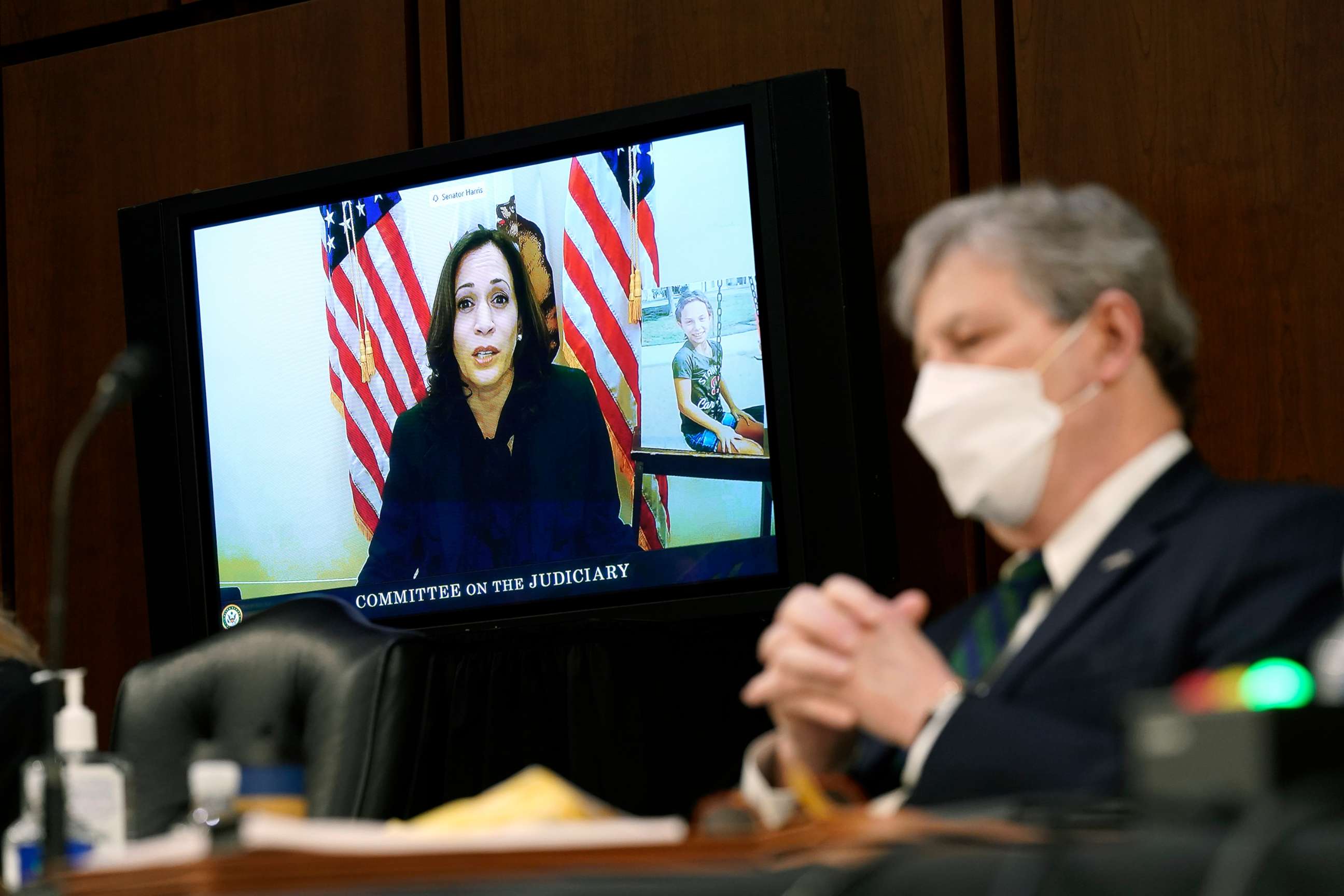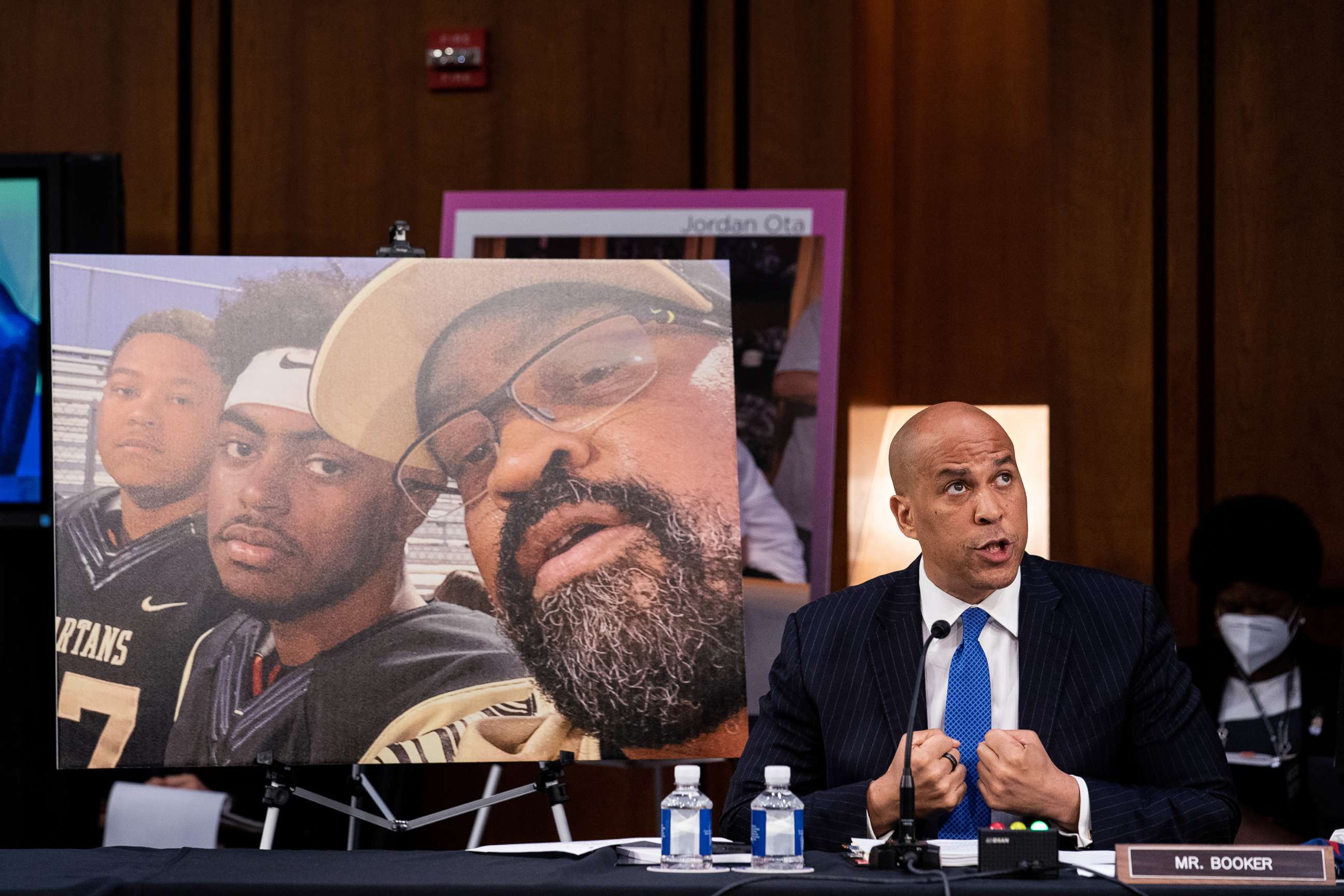Barrett makes opening statement focused on family, conservative judicial philosophy
Judge Barrett, who has been diligent in keeping her mask on throughout the hearing, except for an occasional sip of water, removed it to be sworn in and to deliver her opening statement.
“As I said when I was nominated to serve as a justice, I am used to being in a group of nine -- my family," Barrett began. "Nothing is more important to me, and I am so proud to have them behind me."
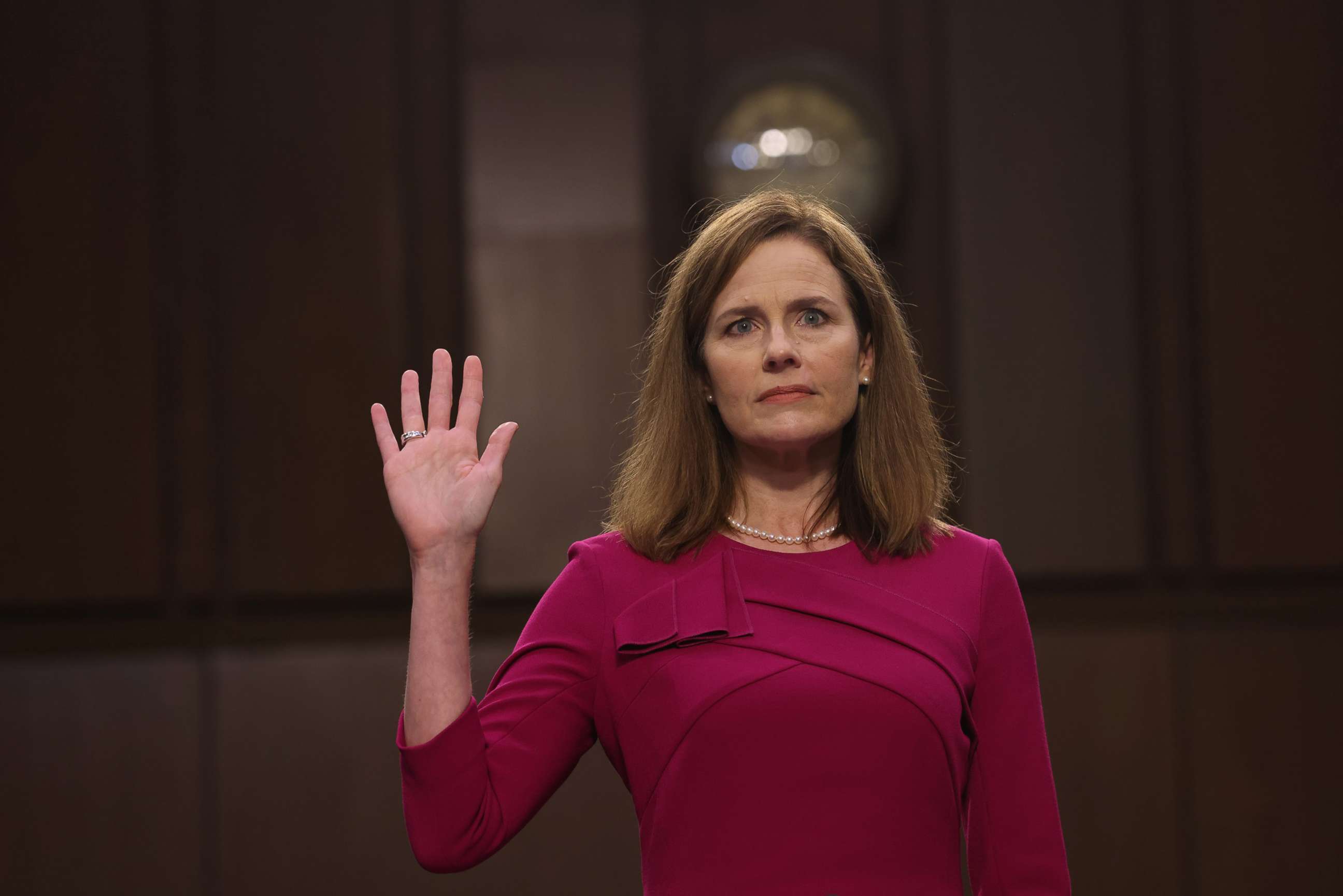
Barrett said she'd bring new perspectives to the bench as she'd be the first mother of school-age children to serve, the first justice from the Seventh Circuit in 45 years and the only sitting justice who didn’t attend Harvard or Yale law schools.
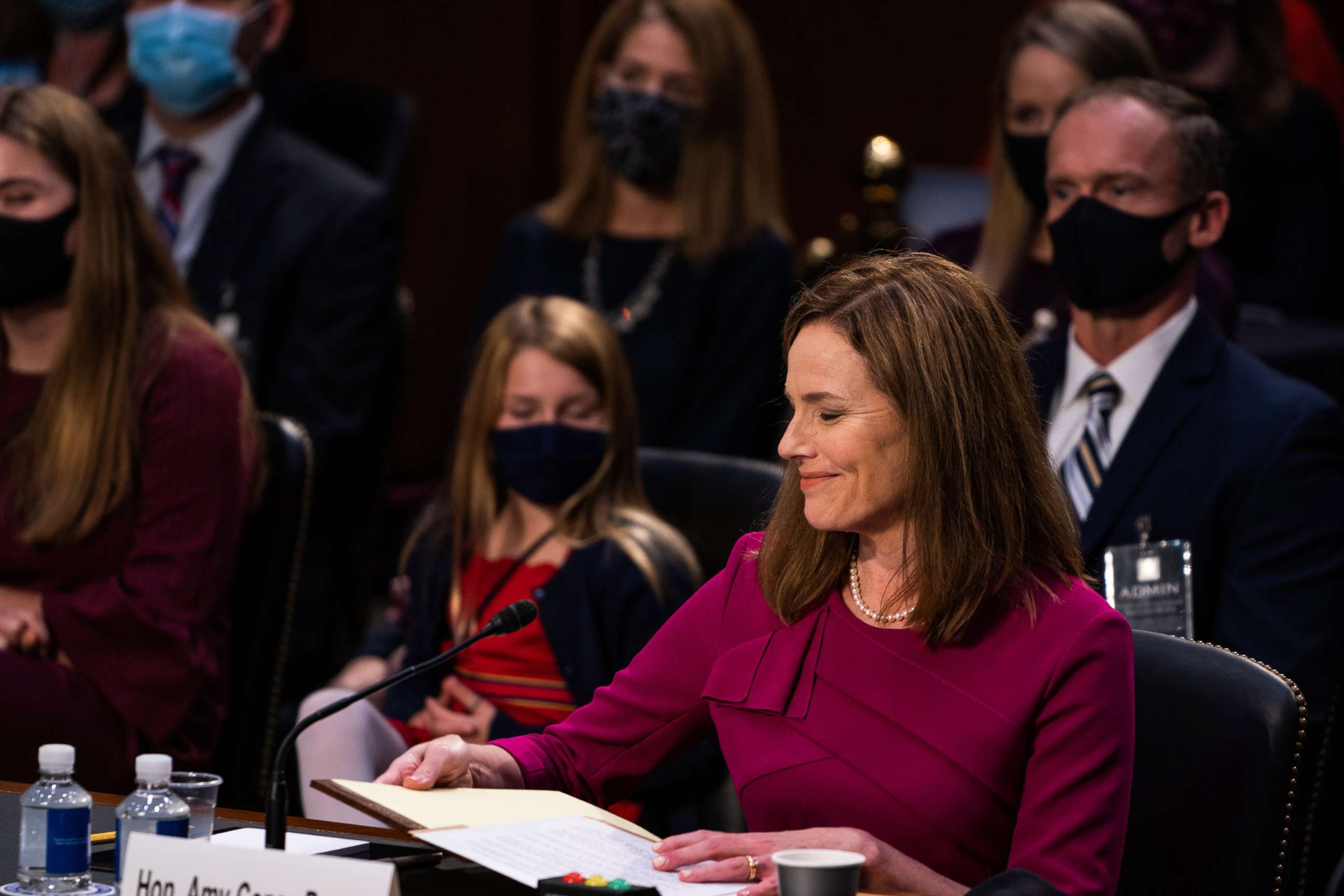
After speaking of her own upbringing and family of nine, Barrett turned to how she interprets the law, following in the textualist and originalist approach of Justice Antonin Scalia, for whom she clerked. "It was the content of Justice Scalia's reasoning that shaped me. His judicial philosophy was straightforward: 'A judge must apply the law as it is written, not as she wishes it were,'" she said.
“Justice Scalia taught me more than just law. He was devoted to his family, resolute in his beliefs, and fearless of criticism. And as I embarked on my own legal career, I resolved to maintain that same perspective,” she said. “I worked hard as a lawyer and a professor; I owed that to my clients, my students, and myself. But I never let the law define my identity or crowd out the rest of my life.”
Barrett said a similar principle of separation applies to the role of the courts, a line that will likely pick up traction in questioning from Democrats.
“The policy decisions and value judgments of government must be made by the political branches elected by and accountable to the people. The public should not expect courts to do so, and courts should not try,” she said.
Invoking her children, Barrett described the standards she says she sets for herself on ruling in any court, another line Democrats will likely seize on in their arguments for upholding the Affordable Care Act.
“When I write an opinion resolving a case, I read every word from the perspective of the losing party. I ask myself how would I view the decision if one of my children was the party I was ruling against: Even though I would not like the result, would I understand that the decision was fairly reasoned and grounded in the law?” she said.
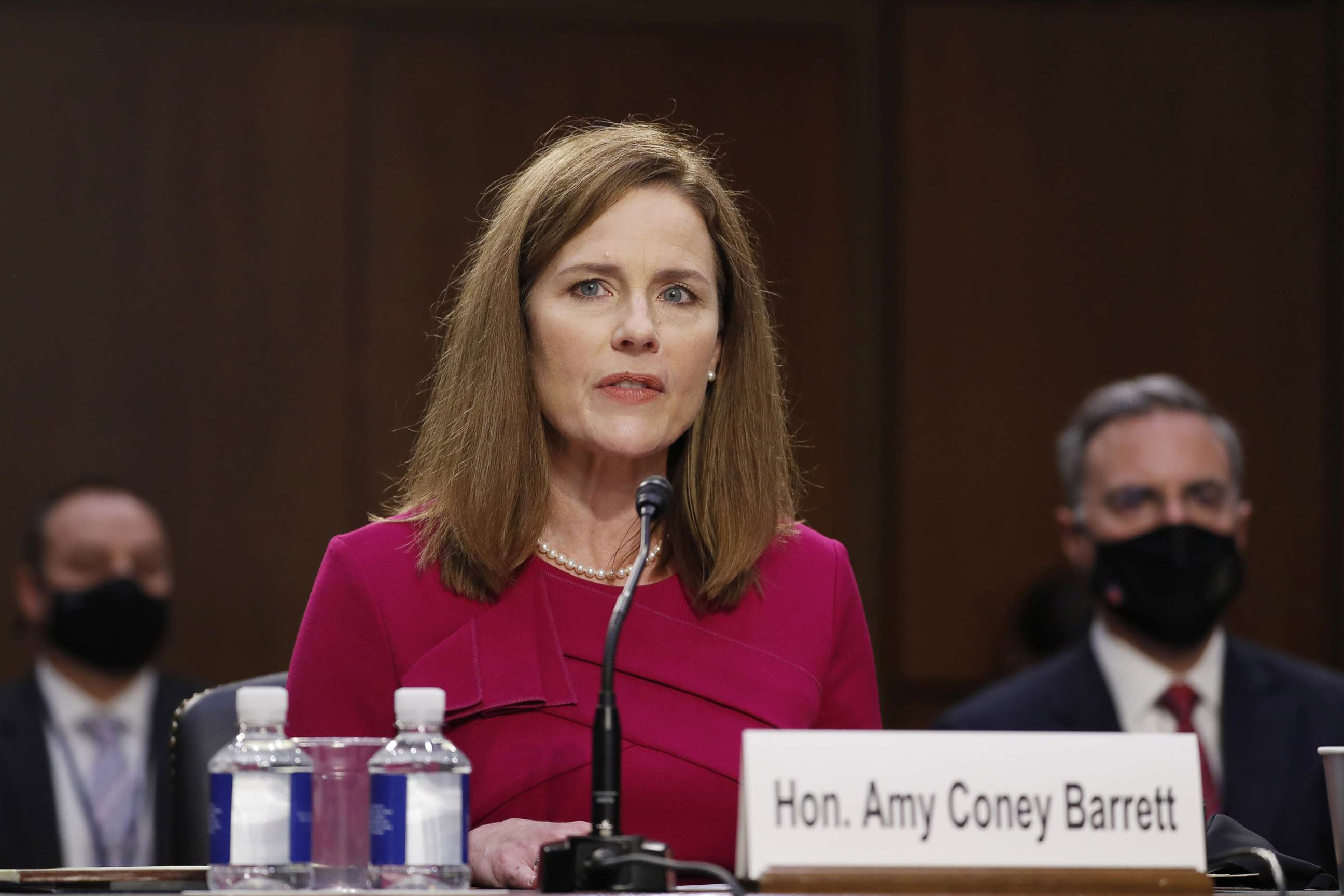
Barrett said she never sought out the Supreme Court nomination and thought carefully before accepting, acknowledging she will never take the place of Justice Ginsburg.
“I have been nominated to fill Justice Ginsburg’s seat, but no one will ever take her place. I will be forever grateful for the path she marked and the life she led,” she said.
